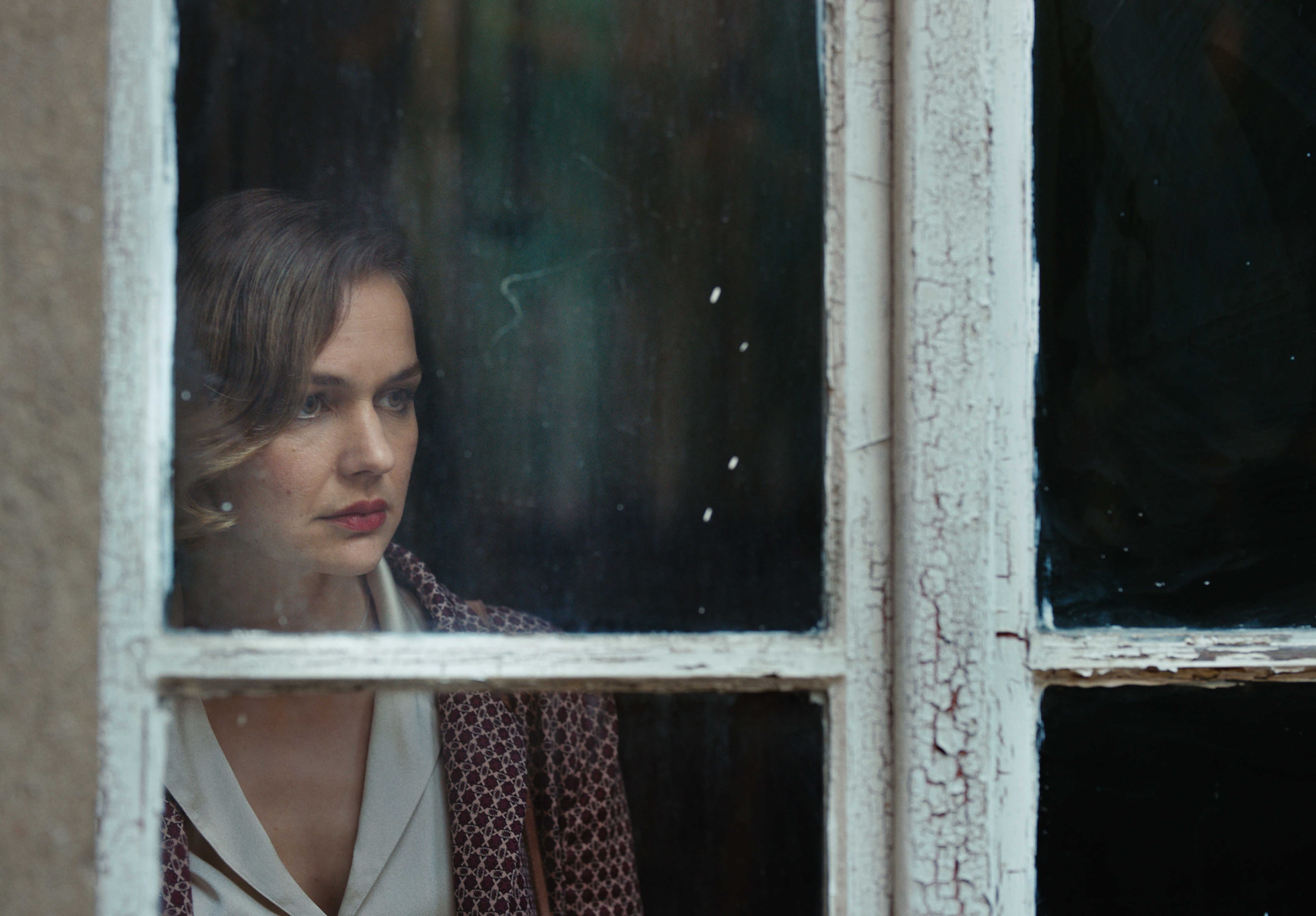Now Playing
Current DJ: Jenny West: Music For Chameleons
The Weather Station Neon Signs from Humanhood (Fat Possum) Add to Collection
Requests? 773-DJ-SONGS or .(JavaScript must be enabled to view this email address)

by Kyle Sanders
What can I say about our current state of affairs other than that our global society has "been through a lot"? That would be putting it mildly. Political turmoil, social unrest, cultural clashes--not to mention the ongoing battles of artificial intelligence and the cyber spread of misinformation--have really put us through the wringer since...I'm not even sure when it started!
If cinema is a creative reflection of our times, then there are several titles playing at this year's Chicago International Film Festival that do a hauntingly accurate job of capturing what it feels like to be living in this era of anguish.
In Erik Gandini's documentary After Work (Sweden/Italy/Norway), the past, present, and future of labor is scrutinized based on how humans attach their worth to their work. One of humanity's most sought after goals is to have a job, and finding employment seems to always be the greatest advice anyone could offer someone. It's part of the philosophy of Carpe Diem: making the most of the present, because to do nothing is to be dead.
This might be the reason why so many people define themselves by their occupation. What they do for a living is associated with who they are, and to be without a job would mean they have nothing.
 After Work
After Work
This could explain why humans feel so overworked and why so many (particularly Americans) rarely take advantage of vacation time. In South Korea, a statewide campaign to work less was instituted after the revelation of "overworking" caused a high suicidal rate. In Kuwait, the right to work has been implemented, but has left so many of its citizens with nothing to do.
In Italy, the problem isn't so much a culture of being overworked, as it is a culture of NEETs: Not in Employment, Education, or Training. This involves so-called Trust Fund babies, who don't earn a living and yet have an insurmountable level of wealth. Yet, what do these kids contribute to the world aside from hefty restaurant and bar tabs?
After Work doesn't paint a pretty picture of the future of employment either. With the increasing rate of robotic jobs and the growing number of those known as the "involuntary unemployed," the future seems rather bleak.
With the recent strikes in the news--unionized groups seeking better work environments, there's no question that working conditions are being chipped away. Yet, what are you willing to put up with in order to maintain some form of income? As the documentary points out, our attitudes about work are more willing to be exploited rather than to be considered irrelevant.
Exploitation is the name of the game in the satirical Do Not Expect Too Much from the End of the World (Romania/Luxembourg/France/Croatia). Angela, a production assistant for a film company producing a workplace safety video, casts real people who have suffered work injuries. Only those who exude a "commercial quality" will be selected for the video, which means Angela must exhaustingly drive around the city of Bucharest and interview as many of these injured folks as possible. At times, her tireless pursuit nearly causes a work injury of her own.
Do Not Expect Too Much From the End of the World
As she goes around conducting these interviews, she uses whatever free time she has creating TikTok videos of her (filtered) self as a crass male named Bobita, who she channels as a way to "criticize by way of extreme caricature." While Angela herself is genuinely caring to those less fortunate, her male alter ego is aggressively hostile and overtly chauvinist, which seems to be inspired by all the encounters she has with belligerent men, be it on the road or in various establishments.
When an injured worker is finally selected to share his story, the production company goes to great lengths to alter the narrative, so as not to say anything detrimental that could hurt the company producing the film. Ironic, considering the head of the company preaches the Taoist philosophy of not forcing action. What is meant to be for the "benefit of the people," ultimately evolves into something more suitable for corporate needs that cares little for its employees.
The student protesters in The Battle (Brazil) ultimately embrace violent conflict when attempting to prevent a de facto dictatorship in Sao Paulo. Set during one night in 1968 and featuring twenty-one single-take sequences, tensions escalate between left-wing and right-wing college students on the street of Rua Maria Antonia.
Taking place inside and outside of the Philosophy Faculty building of the University of Sao Paulo, students organize and professors lecture on the need for protest because to do nothing would allow their freedom to be overruled.
 The Battle
The Battle
As each sequence counts down like a doomsday clock, relationships become strained, tempers flare, and loyalties are tested. The threat of retaliation from the Command for Hunting Communists Party gradually closes in on the leftist Student Union as the night goes on. Short bursts of violence are scattered throughout, culminating in a finale where peaceful communication is no longer an option. When backed up against the wall, the students will have to unify in order to get through their ordeal.
Like the students in The Battle, much of the action that takes place in Black Box (Germany) occurs within the confines of a single location: only this time it's a Berlin apartment building. The residents aren't too pleased with the new building's owner, Mr. Horn, but when a lockdown takes effect without warning and without context, each resident must contend with social, cultural, and familiar tensions while uncovering Horn's furtive plans.
 Black Box
Black Box
Using the impending threat of gentrification to serve as a Fascist fable, Black Box takes its ensemble of characters on a ride through a claustrophobic atmosphere swirling with rumors, accusations, and paranoia. Moments allowing bitter feelings left over from the pandemic resurface, placing those within the film and the audience on edge.
Horn sort of stands in for "Big Brother," not trusted because he "knows everything" and "listens and delivers." His true intentions seemingly set the tenants against one another, planting doubts that threaten their residencies and their status privilege. Whatever caused the lockdown surrounding the building's perimeter is nothing compared to what develops from within the confines of its courtyard.
All of these titles exploit the weaknesses of the human psyche. Fear and guilt seem to be the most manipulative tools commonly used to persuade human behavior, leaving less trails of bread crumbs and red tape from a privileged source.
As humans, we are a detriment to our own survival, unable to communicate or exist peacefully without issue. It feels like with each new headline we read, we're drifting ever so closer to the end, but perhaps if more cinema produced parables such as these four titles, we might manage to survive.
Previous entry: Life Preservers: Reviews of “Pictures of Ghosts,” “Bye Bye Tiberius,” “Food Roots,” and “They Shot the Piano Player”